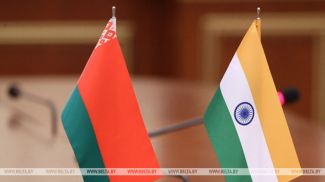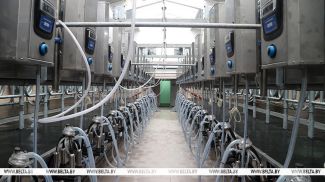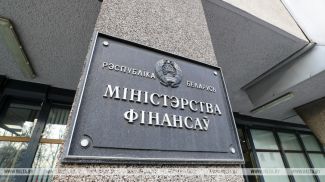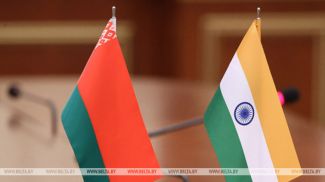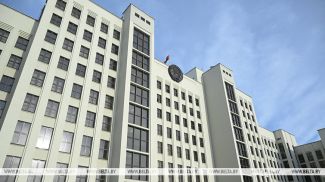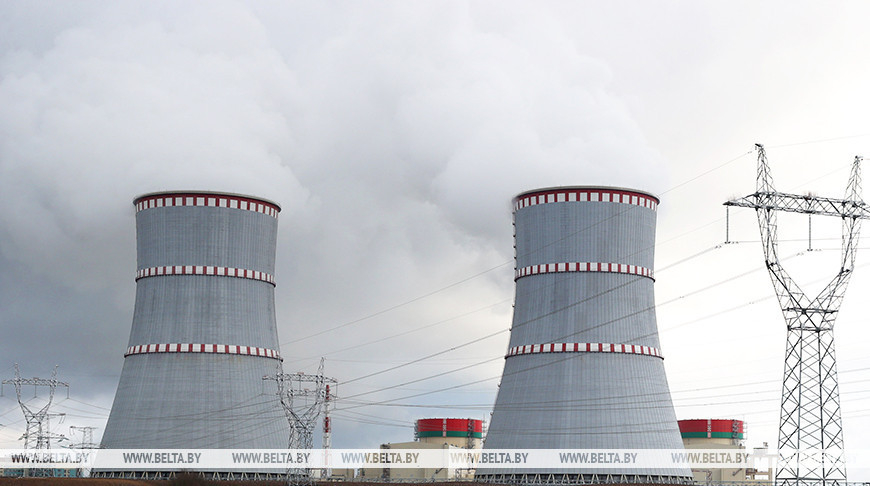
Cooling towers of the Belarusian nuclear power plant. An archive photo
ISTANBUL, 30 October (BelTA) – What effect the development of nuclear technologies can produce for other economy branches was explained by Kirill Komarov, First Deputy Director General, Director for Development and International Business of the Russian state nuclear industry corporation Rosatom, in his speech during the 18th Verona Eurasian Economic Forum in Istanbul, BelTA has learned.
Kirill Komarov said: “When we come to different countries with projects to build nuclear power plant units, we essentially help every country create its own nuclear industry, including entire sections such as infrastructure, educational programs, and personnel training systems. We also support the development of the national regulators and local equipment manufacturing.”
In his words, nuclear energy industry contributes to the diversification of economy, essentially creates entire new economy branches, stimulates the development of related industries, and opens up new export opportunities. Apart from that, it creates new human resource potential: the nuclear industry requires thousands of highly qualified specialists.
“The development of nuclear technologies is of critical importance for any country intent on developing its technological sovereignty. Nuclear technologies are not only about energy. They are also about healthcare, agriculture, science, and many other things. In Belarus we have built the first nuclear power plant, which now produces 40% of the country’s clean electricity. And we have immediately launched a number of other projects that stem from our competences such as electric transport, additive technologies, and nuclear medicine. It is only the beginning. Serious development will follow,” Kirill Komarov said.
The 18th Verona Eurasian Economic Forum is scheduled to take place in Istanbul on 30-31 October. The event has gathered prominent politicians, heads of large companies, scientists, and experts from over 30 countries. The forum has been organized by the Conoscere Eurasia Association with assistance of the Roscongress Foundation.




